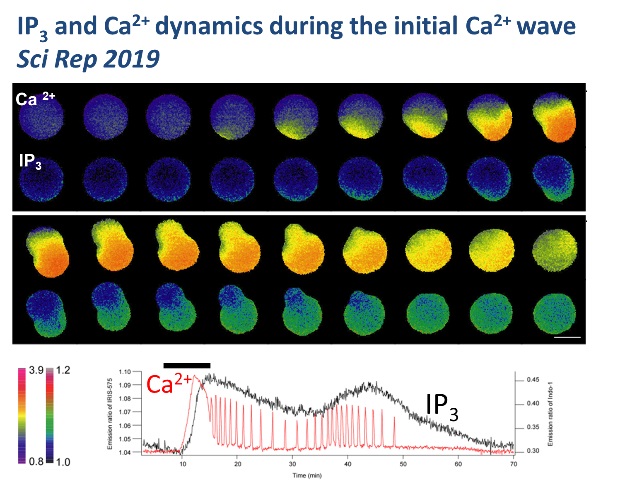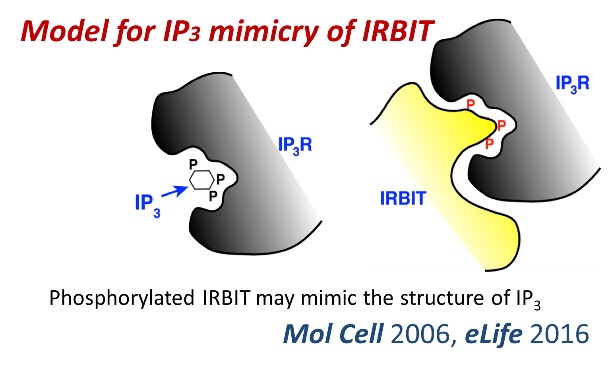
Lab of Cell Calcium Signaling is a newly established Mikoshiba lab at ShanghaiTech University.
Our lab studies the cellular and molecular mechanism of calcium signaling in the normal and disease states. Intracellular calcium ions (Ca2+) must be kept under strict control at a very low level inside the cells so that Ca2+ can act as second messengers responsible for diverse cell functions. Massive Ca2+ increases in the cytosol are incompatible with cell survival and abnormal Ca2+ signaling results in various kinds of diseases.
We discovered a key Ca2+ channel, inositol 1,4,5-trisphosphate (IP3) receptor (Nature 1989) and found its role in fertilization (Science 1992), dorso-ventral axis formation (Science 1997, Nature 2002), neurite extension (Science 2005), exocrine secretion (Science 2005), learning and memory (Nature 2000, Nature Neurosci 2015), behavior (Nature 1996), apoptosis (Cell 2005, Neuron 2010, eLife 2016), and human genetic diseases, such as anhydrosis (J Clin Invest 2014) and spinocerebellar ataxia 29 (PNAS 2018). We also discovered a pseudo-ligand for IP3R, IRBIT (IP3R binding protein released with IP3) (Mol Cell 2006), which works as an assumed third messenger to regulate acid-base balance by activating Na+ HCO3- co-trasnporter 1, Na+ H+ exchanger, and CFTR channel.
Based on these findings, our lab will conduct cutting-edge researches under collaborative and worldwide scientific environments with fully innovative equipment and facilities at ShanghaiTech University and another Mikoshiba lab at Toho University in Japan.
OUR PROJECTS
We are interested in the role and mechanism of cell signaling focusing especially on the transduction of the Ca2+ signaling. We are studying mainly four core projects as follows.
1. Calcium Signaling in Brain
Calcium signaling in the brain is essential to maintain a normal brain structure and function. We shall study molecular mechanisms by which the IP3 receptor control neuronal morphology and function. Glial cells surround neurons to modulate their functions, so glial IP3 receptors will be also targets for our study.
2. Calcium Signaling in Differentiation
We discovered IP3 receptor is involved in cell differentiation and development. We shall study how IP3R is involved in cell fate determination by detailed analysis of local Ca2+ signaling mediated by IP3 receptors at cellular microdomains.

3. IP3 receptor Structure and Function
Recent studies have demonstrated atomic structures of IP3 receptors and ryanodine receptors, suggesting a shared gating mechanism. However, we have never known how IP3 and Ca2+ bind to open the channel. We shall study the gating mechanism controlled by IP3 and Ca2+.

4. IRBIT Function and Mechanism
IRBIT is an IP3 receptor binding protein released in the presence of IP3, which is discovered and named in the Mikoshiba lab. IRBIT regulates Ca2+ signaling, the intracellular pH homeostasis, and ribonucleotide reductase which controls tumor growth. We shall study molecular mechanism of how IRBIT controls these cellular signaling.

Group Photo
